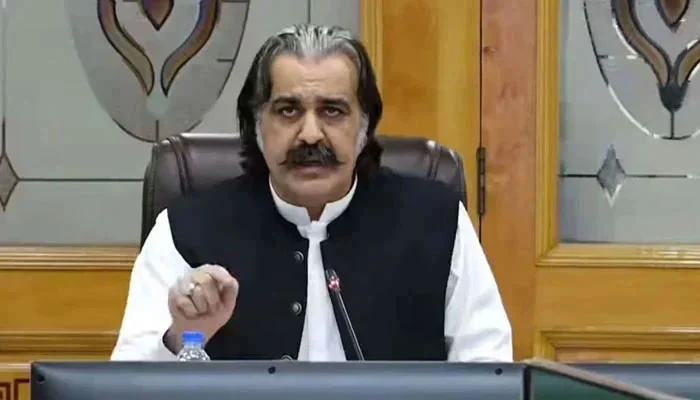Ali Ameen Gandapurr political career has become a significant figure in Pakistan’s political landscape, particularly within the Khyber Pakhtunkhwa (KP) region. As a member of Pakistan Tehreek-e-Insaf (PTI), he has played a prominent role in shaping policies and contributing to the development of the province. His journey from a local politician to a federal minister has been marked by a mix of achievements, controversies, and resilience, making him one of the most talked-about politicians in Pakistan’s political circles.
Early Life and Political Entry
Ali Ameen Gandapur political career was born into a well-known political family in Dera Ismail Khan, a district in southern KP. His father, Allah Nawaz Khan Gandapur, was a seasoned politician who served in various capacities. Ali Ameen’s early exposure to politics shaped his ambitions to serve the people of his province.
He joined PTI in its formative years, attracted by Imran Khan’s vision for change. His loyalty to PTI paid off as he began his political career by contesting local elections. His grassroots appeal and strong connection with his constituents helped him establish himself as a prominent political figure in the region.
Rise to Provincial Politics
Gandapur’s first major political victory came when he was elected as a Member of the Provincial Assembly (MPA) of Khyber Pakhtunkhwa in the 2013 general elections. His role as the Minister for Revenue and Relief in the provincial cabinet was a testament to his growing influence within the party.
During his tenure as a provincial minister, Gandapur was responsible for managing revenue collection, which is crucial for a resource-constrained province like KP. He focused on land reforms, revenue generation, and improving the transparency of tax collection mechanisms. His aggressive and sometimes controversial approach to governance earned him both praise and criticism.
Federal Role and Key Contributions
Ali Ameen Gandapur’s political career took a significant leap when PTI swept the 2018 general elections, and Imran Khan formed the federal government. Gandapur was appointed as the Federal Minister for Kashmir Affairs and Gilgit-Baltistan. His new role gave him national prominence, where he focused on advocating for the rights of the people in these regions.
During his tenure as Federal Minister, Gandapur worked on various initiatives to bring economic development and social welfare to the people of Gilgit-Baltistan. He was instrumental in pushing forward reforms related to the region’s political autonomy, education, and healthcare services. His aggressive diplomacy on the Kashmir issue, particularly in international forums, showcased his determination to raise awareness about the situation.
Controversies and Criticism
Despite his contributions, Gandapur’s career has not been without controversies. His strong personality and unfiltered speeches have often landed him in hot water. His involvement in electoral violence during the 2015 KP local elections raised questions about his methods, though he was eventually cleared of wrongdoing.
In addition to his confrontational style, Gandapur has been criticized for his handling of certain political events. His remarks during political rallies and his unapologetic defense of PTI policies have made him a polarizing figure in national politics.
Recent Political Developments
Ali Ameen Gandapur continues to be an active member of PTI, advocating for the party’s policies and representing the interests of KP and the broader national cause. His role in PTI’s election campaigns and his continued influence in the Gilgit-Baltistan and Kashmir Affairs Ministry are testaments to his enduring relevance in Pakistan’s political sphere.
While he remains a controversial figure, his political journey reflects the complexities of Pakistan’s political environment. Ali Ameen Gandapur’s ability to navigate both provincial and federal politics, while maintaining a strong connection with his constituents, highlights his resilience as a politician.
Conclusion
Ali Ameen Gandapur’s political career is one of ambition, dedication, and controversy. His rise from local politics in Dera Ismail Khan to holding a key federal ministry reflects his significant role in PTI and Pakistan’s political landscape. Though his career has been marked by both achievements and challenges, his influence in shaping the future of Khyber Pakhtunkhwa and Gilgit-Baltistan remains undeniable.
